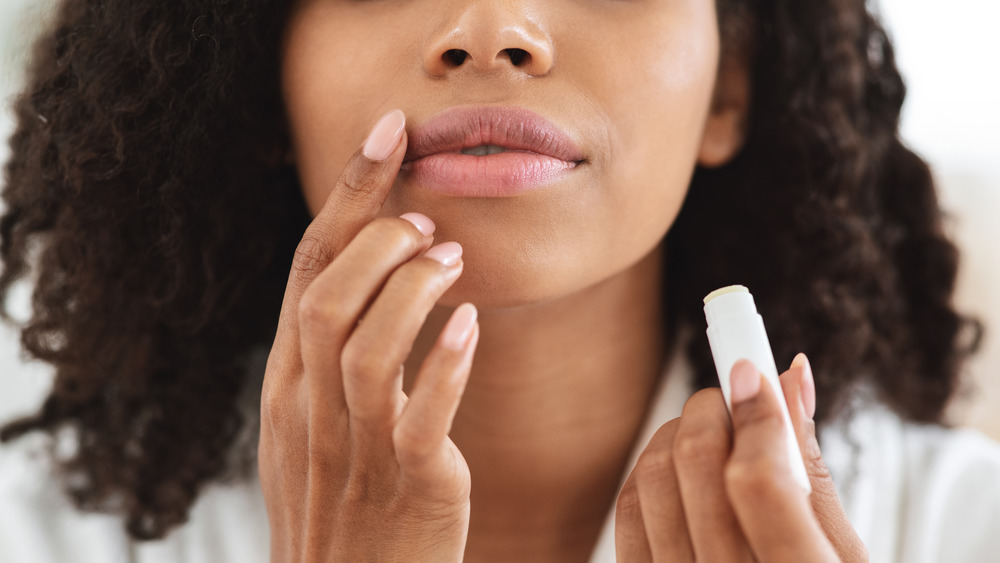When You Lick Your Lips Too Much, Here's What Happens
The average adult human body consists of approximately eight pounds and 22 square feet of skin (via National Geographic). It is well established that the integumentary system, or your skin, is crucial to your very survival. Not only does it shield you from the elements and keep your inner workings, well, inner as opposed to outer, but it also helps you feel sensations by housing nerves throughout.
While the skin on most of your body is fairly consistent, the skin of your lips is very different, consisting of the thinnest layers of skin and packed with sensory neurons. Anytime you experience something dry, naturally and instinctively you want to moisturize it or wet it. The same rings true when your lips feel dry. One of the most thoughtless and natural behaviors humans exhibit is licking their lips when dry. But this action actually has the opposite effect, temporarily wetting the lips but ultimately leaving them more dry and damaged than before.
You see, saliva contains digestive enzymes which are meant to help break down our food, not moisturize our lips. Those same very enzymes, typically amylase and maltase, can end up breaking down the skin of your lips (via Healthline). While there are many reasons your lips may feel dry, whether it be as a result of the environmental factors or certain medications or medical conditions, repetitive lip licking is a big reason people experience dry, chapped lips.
What you should do instead of licking your lips
In fact, chronic lip licking can lead to the development of lip dermatitis, otherwise known as eczematous cheilitis. This condition is characterized by a red rash of the skin surrounding the mouth and dry, cracking, flaky, or splitting lips. Long-term effects of chronic lip licking include thickening of the skin surrounding the mouth and even infections.
If you're one of many people who unknowingly or simply out of boredom licks their lips, you may be wondering what you can do to stop the habit of repetitively licking your lips. Evan Rieder, M.D., a board certified dermatologist and psychiatrist, tells Allure, " The first step is to ensure that patients are aware of their behaviors and want help, without that, any recommendations are fruitless." In essence, while you can treat the physical manifestations of the habit easily, getting to the root cause will provide the best and most long-lasting treatment. Whether it's on your own or working with a licensed mental health professional, understanding the root of the behavior is critical.
Once the habit aspect is addressed, the American Academy of Dermatology Association (AAD) recommends using a fragrance-free, hypoallergenic lip moisturizer containing one or more ingredients such as castor seed oil, petroleum, shea butter, and ceramide to name a few. The AAD also warns against products containing camphor, eucalyptus, fragrance, and menthol, as they can be more irritating to the lips. Experts also recommend drinking enough water, applying a daily lip-protective sunscreen and using a humidifier in the drier months.


